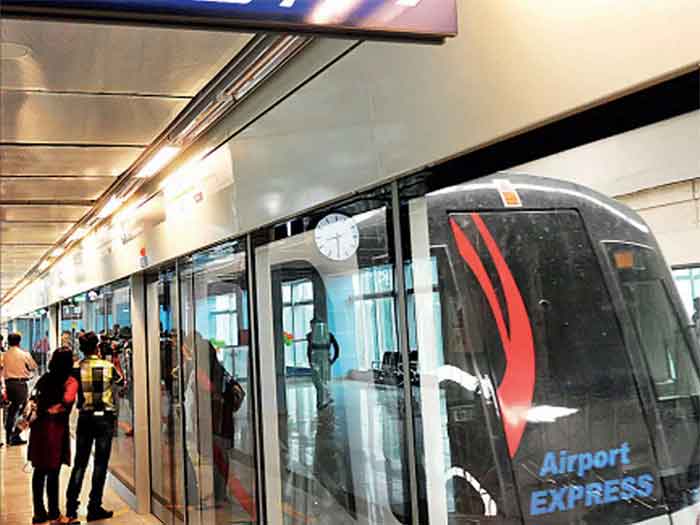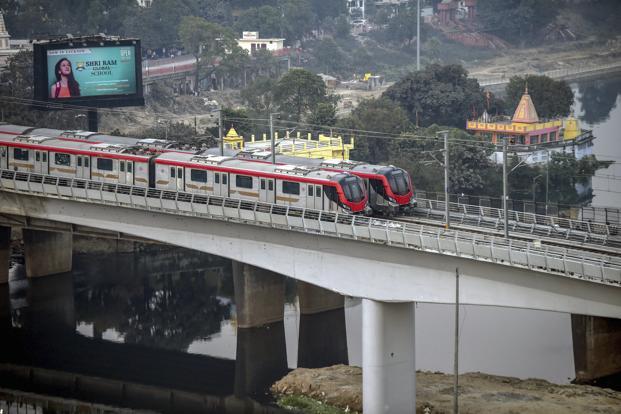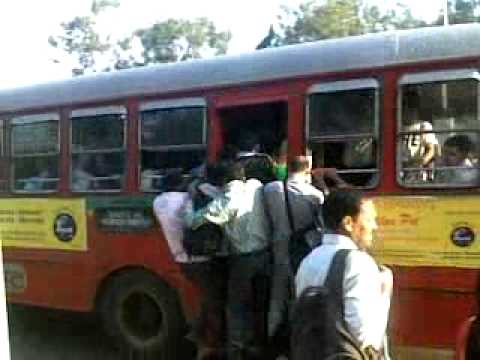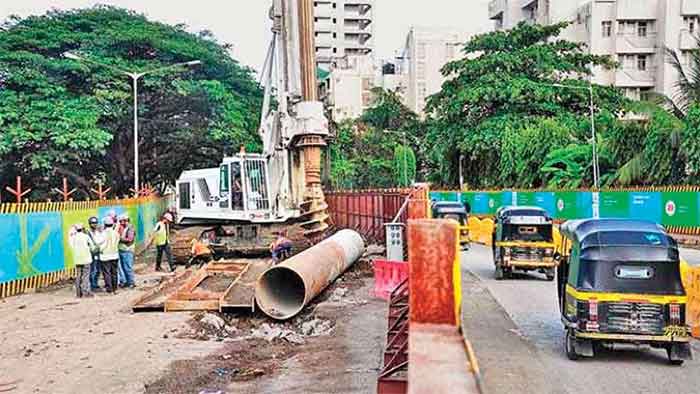Metro work causing havoc in Surat, in Mr Modi’s home state. In Mumbai bus transport is neglected.
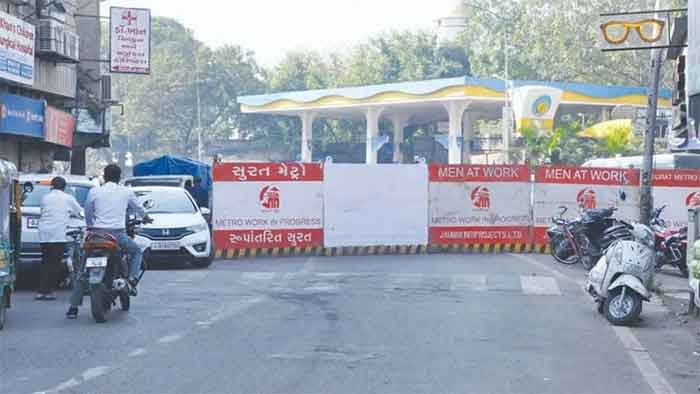
The prohibitively costly Metro rail project has caused disruption on a massive scale in different cities in India. But nowhere else more than in Surat in the Prime Minister’s home state of Gujarat. And also in Mumbai. Metro Mokan says today’s edition of the prominent Gujarati daily Gujarat Mitra, established in 1863. Mokan in Gujarati means calamity. That is what the Metro work is causing.
At the same time the governments are heavily discriminating against the low cost bus systems, denying them funds and creating problems for them actually. Rampant privatisation has added to the havoc. In Mumbai the acclaimed BEST Undertaking bus network is being neglected. Last week it took off as many as 400 CNG operated buses from its fleet causing serious hardship to lakhs of commuters. Frequent fires in buses have been cited as the reason.
I heard a woman bitterly complain to the conductor in her bus yesterday that she has had to wait for more than one hour.
Hahakar is the word in Gujarati to express horror as slush, water are entering houses in Surat, the historic and hugely growing city with millions of poor people left helpless for various reasons. All due to Metro construction work.
It is also being compared to Joshimath because of the disaster caused in the sacred but fragile hill region through monstrous so called development projects in Uttarakhand .
In Surat’s Varachha area the havoc was caused apparently by a tunnel boring machine. So some residents are getting slush and mud in their water pipes but no drinking water. And this is happening in what is being touted as a smart city.
Sadly, many institutions of governance and supervision are swayed by fancy projects and they need to show a much better understanding of people’s basic needs for public transport.
The Supreme court recently declared that the bullet train between Ahmedabad and Mumbai was of national importance while rejecting a plea by Godrej in a case of land acquisition.
O.K. but then the Supreme court should also declare bus transport as of much more importance because the bus is the most crucial form of urban transport whether in London or Mumbai or anywhere else because the bus is flexible and provides access from anywhere to anywhere. The best Metro system cannot do that because of its fixed routes and moreover the bus system is extremely low cost and requires very little infrastructure. Mumbai’s bus transport can easily take care of all the transport needs of the city without one km of Metro. This is because at a fraction of the cost of Metro we can run thousands of buses. Besides the bus network needs very little land acquisition. In fact, we have good, large depots already while the Metro is being expanded without any planning for land and it is robbing the city of precious public space which the bus system is not doing. In fact,the disruption caused by the Metro in Mumbai and elsewhere is causing incalculable harm to bus operations, severely slowing them down, reducing their revenue, increasing their loss and without any apology. In fact, the authorities do not even understand or recognise this simple fact that its policies far from doing good are inflicting great harm to the city.
The Metro has obviously a huge public relations machinery with which it is getting favourable write ups in the media. The latest recruit is a so called anthropologist singing its praises, saying how it is good for women. It is astonishing that such scholars do not look at the broader picture that is what good education should teach us. There is no reason whatsoever why the bus system as well cannot provide safety for women if only the government makes a little effort. Since people do not know how the media works and is managed, they take such certificates literally. At least serious researchers should see reality beyond the shine of the Metro. The government can easily make ordinary railway stations or bus depots clean and shining.
In Maharashtra, the public state transport corporation, once the pride of the country and a pioneer, has been systematically undermined by politicians and bureaucrats , it could be argued. Leave alone other factors, though the BJP is now in power, it has done little to clean up the stinking ST depots utterly disregarding the Swachh Bharat mission. Now a proposal is being pursued to introduce private services which will further undermine ST operations. Concern has been expressed over this and rightly so by Srirang Barge, general secretary of the ST Karmachari Congress. The MsRtc should immediately start services in rural areas where they are really needed and reduce facilities created for the better off class which is hardly using them. For example, I often notice that the air conditioned luxury Shivneri buses between Mumbai and Pune have very few riders. This is so sad. There is a lot that can be done to improve the system. It will cost little. What we need is commitment to the people.
Vidyadhar Date is a senior journalist and author of a book on public transport

